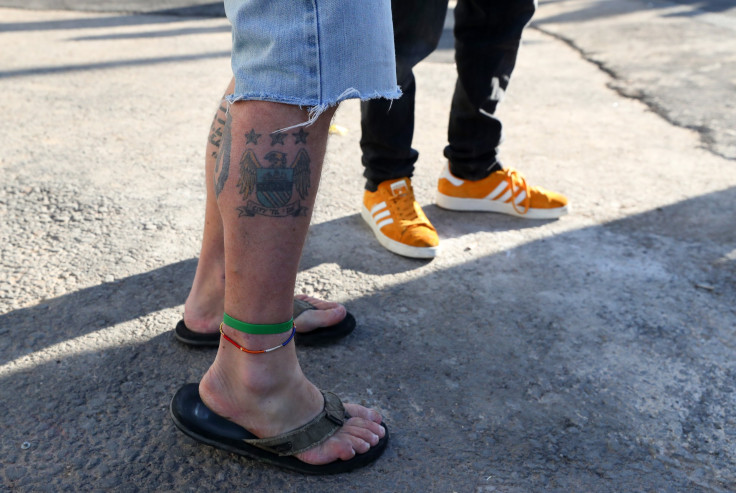World's Oldest Tattoos Discovered On 5,000-Year-Old Egyptian Mummies

Scientists have discovered the world's oldest tattoos hidden on two ancient Egyptian mummies believed to be about 5,000 years old.
The tattoos, a wild bull, a Barbary sheep and an S-shaped motif, were found on two naturally mummified bodies at the British Museum in London, England. Researchers used infrared technology on what were initially thought to be just dark smudges to identify the body art.
Scientists saw the markings on a male and a female mummy dating back between 3351 and 3017 BC, according to a report published Thursday in the Journal of Archaeological Science. The researchers unearthed both mummies in Gebelein, located in the southern part of Upper Egypt.
Daniel Antoine, lead researcher and curator of physical anthropology at the British Museum, explained that the findings could rewrite the history of tattooing.
"It is quite a departure to see people putting images on their body and that will have resonance with people today," Antoine said in the paper. "Incredibly, at over 5,000 years of age, they push back the evidence for tattooing in Africa by a millennium."
He added: "We are very confident that this is tattooing and not painted or decorated. It would have been carried out with some type of needle made from bone or copper."
Tattoos have long been a part of various cultures in ancient history. In September 1991, scientists reported 61 tattoos, mostly geometric markings on a mummy dubbed Ötzi the Iceman, who lived between 3400 and 3100 BC.
According to the study, researchers concluded that the tattoos on the two mummies were figurative symbols. The male mummy, also known as the Gebelein Man A, had markings believed to represent strength and virility.
Researchers found that the female mummy, known as Gebelein Woman, had S-shaped markings located on the upper arm and shoulder that may have stood for batons or clappers used in dance rituals.
Before this breakthrough, scientists thought that tattoos were worn exclusively by women during that time.
© Copyright IBTimes 2024. All rights reserved.




















